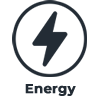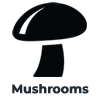In our most recent blog about sleep, we talked about one of the most popular sleep supplements currently out on the market: Melatonin. We discussed dosing as well as what everyone seems to get wrong about Melatonin dosing. We also discussed the practical applications of Melatonin and how its use as a sleep supplement is highly limited in most situations. This is due to the fact that Melatonin benefits us by helping promote a healthy circadian rhythm. However, it does not help much with sleep onset. Highly delayed sleep onset is one of the more common issues that stands in the way of good sleep, and so for most people, Melatonin will not help much with achieving better sleep. This holds especially true if they aren’t using an optimized Melatonin dosage.
Luckily, Nootropics Depot carries a plethora of other supplements that may help speed up sleep onset (reducing sleep latency), while supporting overall sleep quality. This allows us to get out of bed feeling refreshed on a consistent basis. To simplify things a little bit, we spent some time testing out various ingredients that we carry to determine what would be the best choices for promoting a healthy night's sleep and we narrowed this list down to five great supplements. Before we work on promoting sleep quality via supplementation, it is important to understand the basics of sleep.
"There are multiple theories as to why we sleep such as conserving energy, avoiding dangers at night, flushing toxins out of our brains, consolidating memories and processing daily experiences. Even though there isn’t a clear answer to why we sleep, there are clear answers to why we need to sleep..."
The Basics of Sleep:
Sleep is something we all require on a daily basis. Without it, our overall health (especially our cognitive health) starts to suffer. The interesting thing about sleep is that the scientific community does not have a solid answer to the question "why do we sleep?" There are multiple theories as to why we sleep such as conserving energy, avoiding dangers at night, flushing toxins out of our brains, consolidating memories and processing daily experiences. Even though there isn’t a clear answer to why we sleep, there are clear answers to why we need to sleep. Without sleep, our immune system may weaken and our cognitive functions will quickly become highly limited. Sleep deprivation has also been linked to other various adverse health effects such as decreased metabolic and cardiovascular function. This means that in order to promote optimum health and cognition, we need to ensure that we are consistently getting enough high-quality sleep.
What Are The 4 Stages of Sleep?
The other interesting thing about sleep is that it is not a static process. In fact, sleep occurs in four stages, which are as follows:
STAGE 1 SLEEP
This is when we first start drifting off to sleep, this sleep stage is characterized by very slow eye movements and a gradual relaxation of our muscles. It is very easy to get woken up from this stage of sleep which means if you have a hard time getting to sleep this is likely one of the more delicate stages of sleep for you.
STAGE 2 SLEEP
During this stage of sleep, our brain waves start to slow down, our heart rate goes down and our body temperature drops. It is now quite hard to be woken up and some restorative processes start to take place at this stage of sleep.
STAGE 3 SLEEP
At this stage of sleep, our brain waves have become very slow, our body temperature has dropped considerably and our heart rate is now also quite slow. At this point, it is incredibly hard to be woken up which is great as stage 3 sleep is arguably the most restorative part of our sleep. This contributes the most to us feeling nice and refreshed after waking up.
STAGE 4 SLEEP
The fourth stage of sleep takes an interesting turn. Brain waves speed up and so do our eye movements. This stage is also referred to as "paradoxical sleep", due to the fact that our brain waves during REM sleep bear a lot of resemblance to waking brain waves. Unsurprisingly, this is the stage of sleep where we have the most vivid but also most bizarre dreams.
Under normal conditions, we cycle in-and-out of these four sleep stages multiple times a night. On average, it takes us about 90 minutes to cycle through all four stages. This is why you may sometimes feel very groggy when you wake up, whereas other times you feel very awake when you wake up. If you wake up during stage 3 sleep, you are in quite a deep sleep and you are likely to feel very groggy and tired when you wake up. This is in stark contrast to waking up during stage 1 sleep, which as we mentioned earlier, is characterized by a very light sleep. Waking up during stage 1 sleep can leave us feeling refreshed and ready to take on the day. However, since it is quite easy to wake up during stage 1 sleep, awakening can also happen in the middle of the night. When we wake up during stage 1 sleep, it can be quite hard to go back to sleep.
"With this is mind, we want supplements that will kick in fast, and last about 7-8 hours, which is the recommended amount of sleep we should be getting..."
Supporting Our Sleep With Supplements
It is important to be aware of the above sleep stages and our natural sleep cycle when we approach supplementation for sleep. Increasing the depth of sleep during stage 1 sleep can be majorly beneficial when we first fall asleep as well as later in the night. The deeper stage 1 sleep is in the middle of the night, the less likely we will be to wake up during stage 1. That being said, we also want stage 1 sleep to be very light when we are close to waking up in the morning as this will make waking up a much more enjoyable experience. With this is mind, we want supplements that will kick in fast and last about 7-8 hours, which is the recommended amount of sleep we should be getting. To further optimize this process, we could use a sleep timer which will take into account the length of our sleep cycles. For example, a few of us around the office have had great results with this very simple sleep timer.
How To Use A Sleep Timer
To use a sleep timer, simply plug in at what time you want to wake up (or at what time you want to go to bed) and it will give you a time at which you should be setting your alarm the next morning. This alarm time takes into account the average 90 minute sleep cycle and gives you a wake up time that should correspond to your lighter stages of sleep. Anecdotally, waking up has been much easier using this timer, and it also gives you a good idea of how much sleep you are getting.
With the basics out of the way, we can now really start to explore which Nootropics Depot supplements will help support a healthy night's sleep. We will keep referencing back to what we talked about up until now as this will be important for determining what supplements will work best for you. Here is, in our opinion, the 5 best sleep supplement we currently carry that are not Melatonin.


















